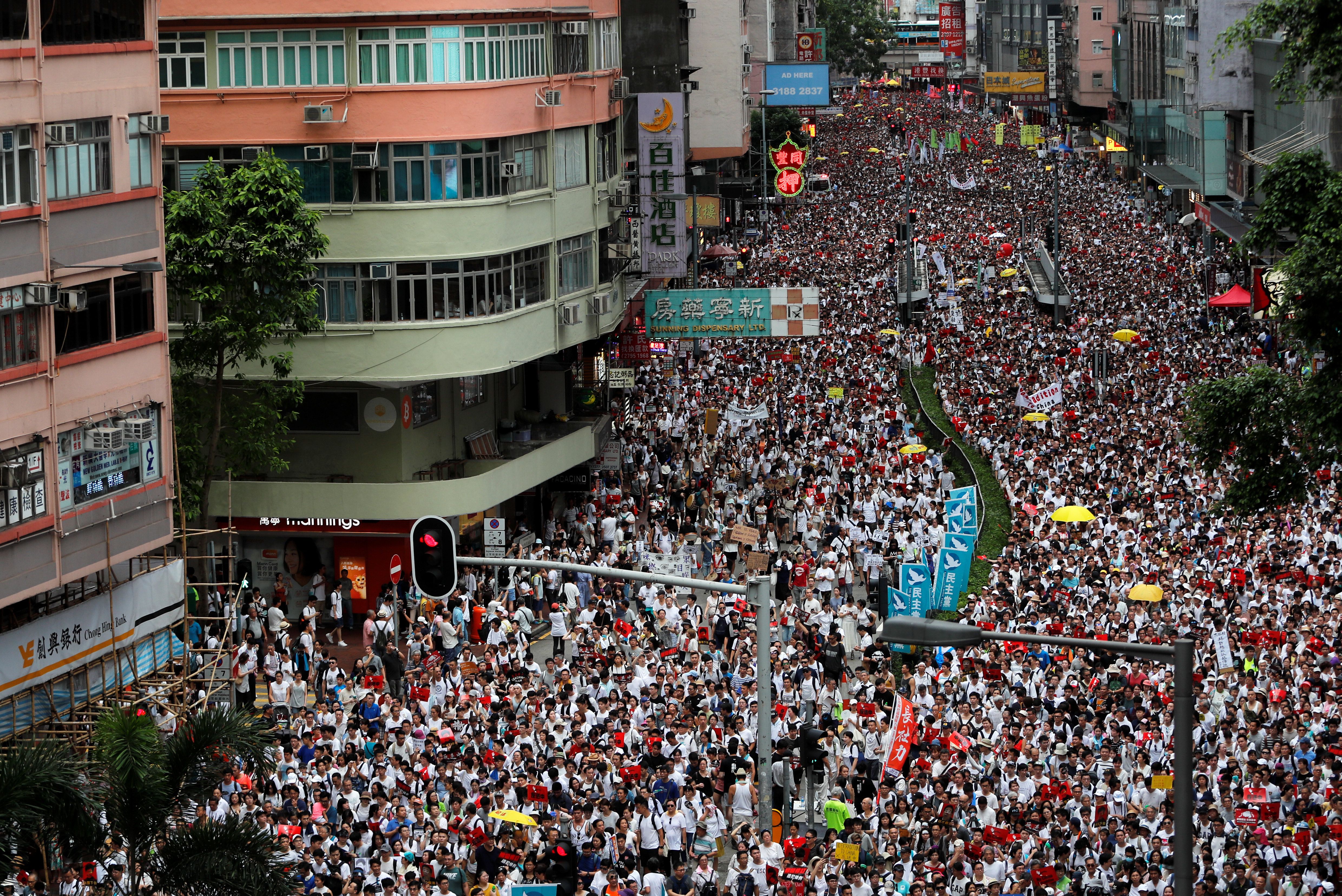June 10, 2019
Hundreds of thousands of protesters packed the streets of Hong Kong on Sunday to denounce a plan that would allow the territory's government to extradite residents to mainland China for trial. The demonstrations looked to be the largest since the British handover of Hong Kong in 1997, and more protests are scheduled for Wednesday.
The Background: From 1841, Hong Kong was governed as a British colony. A handover from Britain to China in 1997 was conditioned on a principle of "One China Two Systems," which recognizes Hong Kong as part of China while allowing the territory its own legislature, economic system, judicial independence, and a "high degree of autonomy." The territory is governed according to a "Basic Law," a sort of constitution that guarantees these rights. China has control of Hong Kong's foreign and defense policies.
The Basic Law expires in 2047, and many Hong Kongers fear that Beijing is already trying to strip away the territory's rights. Five years ago, a set of pro-democracy sit-in demonstrations known as the "Umbrella Movement" gained international attention and embarrassed China for nearly three months.
What triggered this latest fight? A Hong Kong citizen named Chan Tong Kai has confessed to murdering his girlfriend during a visit to Taiwan last year. But Chan, back in Hong Kong, can't be returned to Taiwan: Hong Kong has no extradition treaty with Taiwan, and he can't be tried in Hong Kong for a murder committed elsewhere. He did plead guilty to lesser charges and received a sentence of 29 months in prison.
Things got hot when Carrie Lam, Hong Kong's Chief Executive, proposed legal changes that would not only allow Hong Kong citizens to be extradited to Taiwan but also to mainland China. This ignited fears that China could demand that Hong Kong surrender its citizens under any pretext, effectively ending the legal rights protected by the Basic Law.
What does Hong Kong's government say? Lam says Hong Kong must not be a sanctuary for Chinese criminals hoping to escape justice on the mainland, and she argues that Hong Kong's courts will protect its citizens against arbitrary or politically motivated extradition requests from Beijing.
What do the protesters say? They insist that Lam, who rose to her position with Beijing's support, will not protect the rights of the territory's citizens when China pressures her.
What does Beijing say? The state-run China Daily says that "some Hong Kong residents have been hoodwinked by the opposition camp and their foreign allies into supporting the anti-extradition campaign."
The broader fear: Outsiders are also watching this story closely, in part because Hong Kong is home to one of the world's most important financial centers and an airport that serves as transfer point for large numbers of international travelers. Fears that China could seize anyone at any time could have a chilling effect on both.
More broadly, if these protests gain more momentum, will the Hong Kong government, or Beijing, respond more forcefully? That might create a much larger and more dangerous problem.
From Your Site Articles
Related Articles Around the Web
More For You
Most Popular
- YouTube
In this Quick Take, Ian Bremmer reacts to President Trump’s State of the Union address, calling it “a rehashing of the greatest hits” with little new policy direction.
Small business hiring surged 7% above the 2024 average in December, led by a surprise rally in retail. But with uncertainty still historically high and mounting concerns over tariffs, can this momentum survive 2026? Explore the data behind the resilience of the US small business sector. Get the latest economic insights from Bank of America Institute.
© 2025 GZERO Media. All Rights Reserved | A Eurasia Group media company.
